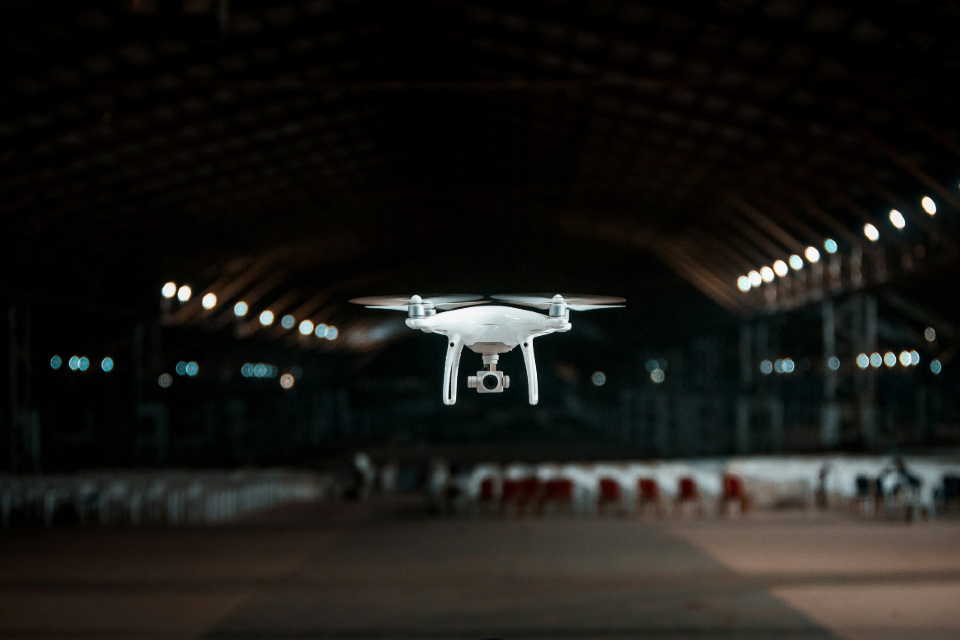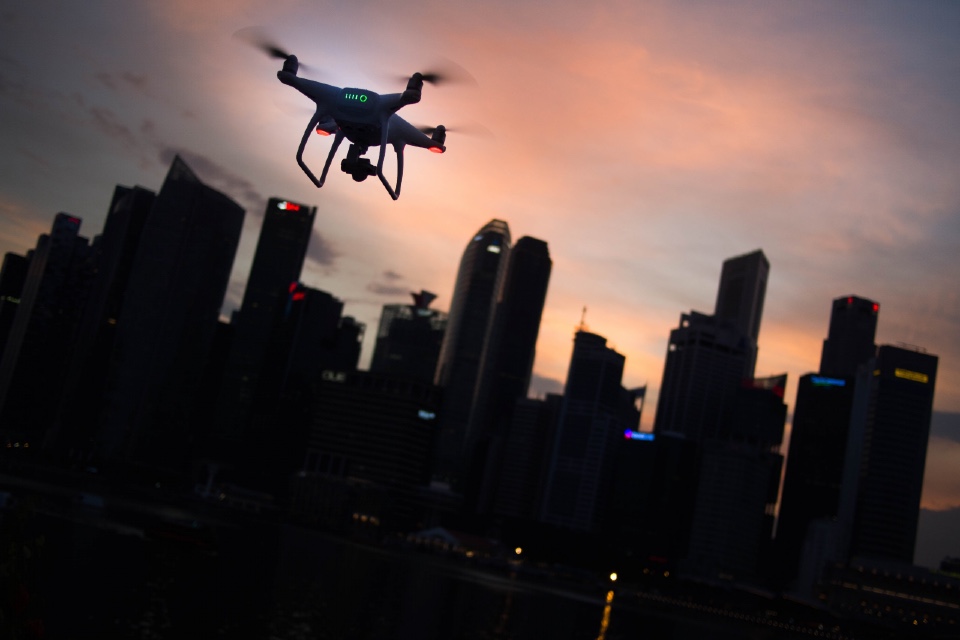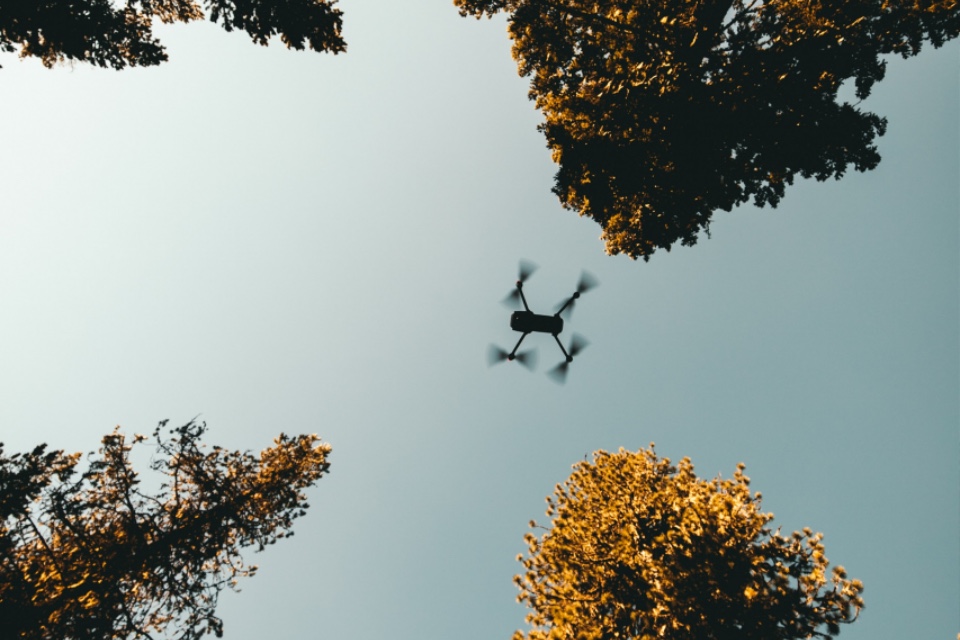The advent of drone technology marks a significant evolutionary step in physical security, offering novel approaches to safeguarding commercial and public properties. Here in the UK, security professionals are increasingly harnessing the capabilities of drones, not only to enhance existing security measures but also to innovate new methods of surveillance and threat assessment. Let’s explore the current and potential future contributions of drone technology in the field of physical security, as informed by attendees at the Total Security Summit…
Current Applications of Drone Technology
Presently, drones are primarily used in physical security for surveillance purposes. They offer a unique aerial perspective, which is particularly advantageous for monitoring large or hard-to-reach areas. Drones equipped with high-resolution cameras, thermal imaging, and night vision capabilities can patrol and inspect properties, providing real-time video feeds to security teams. This is invaluable in large commercial complexes and public spaces like parks or outdoors, where ground-level monitoring may not be sufficient.
Drones also play a crucial role in event security. During public events or gatherings, drones can provide an overhead view, helping security personnel monitor crowd movement and detect any abnormal or potentially dangerous activities. This aerial surveillance capability allows for a swift response to any security threats, ensuring the safety of attendees.
Enhancing Response to Emergencies
Drones are not only beneficial for routine surveillance but also in emergency situations. In scenarios like fires or natural disasters, drones can be deployed quickly to assess the situation, identify safe routes for evacuation, and locate individuals who may be trapped or injured. This rapid response capability can significantly aid in minimising harm and coordinating rescue efforts.
Future Potential in Physical Security
Looking towards the future, the potential applications of drones in physical security are vast. One of the most promising developments is the integration of Artificial Intelligence (AI) with drone technology. AI-powered drones can autonomously patrol designated areas, analyse footage in real-time to identify potential security threats, and even predict possible breach points based on historical data.
Another emerging concept is the use of drone swarms – groups of drones operating together, controlled by a single operator or autonomously through AI. These swarms could provide comprehensive surveillance over a larger area, offering a more robust security solution than single drones.
Challenges and Considerations
While drones present numerous opportunities for enhancing physical security, there are challenges and considerations. Privacy concerns are paramount, especially when drones are used in public spaces. It is crucial to ensure that drone operations comply with privacy laws and respect individual rights. Additionally, there are logistical challenges, including the need for skilled operators, battery life limitations, and the requirement to adhere to aviation regulations.
Drone technology is rapidly becoming an indispensable tool for physical security professionals in the UK. Its capabilities in surveillance, emergency response, and the potential integration with AI position it as a transformative element in the field of security. As technology advances and regulatory frameworks evolve, drones are set to play an increasingly significant role in keeping commercial and public properties secure, now and in the future.
Are you assessing the potential of drones for your organisation’ security needs? The Total Security Summit can help!
Photo by Adedotun Adegborioye on Unsplash






